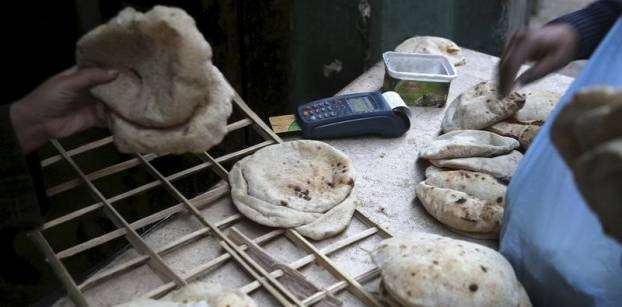Egypt's military takes over running of smart card subsidy system

Consumers using the smart card to purchase subsidised bread at a Cairo bakery on Feb. 9, 2016. Asmaa Waguih/ Reuters
CAIRO (Reuters) - Egypt's military has taken over the running of the country's smart card subsidy scheme, the government said on Wednesday, in the latest sign of the armed forces increasing their influence over the economy.
The government said the management of the smart card subsidy system had been transferred to the military production ministry from the planning ministry.
"The move comes in the context of developing this system which aims to ease pressure on citizens and provide the best service when it comes to bread," the prime minister's office said in a statement.
The smart card system, rolled out in 2014, gives Egyptians points to claim against bread and other items. The cards were also designed to stop bakeries selling subsidised flour on the black market.
However, a Reuters special report found in March the system could be hacked, allowing some bakers to falsify receipts and request far more subsidised flour than they officially sold. Instead of reducing the amount of flour the state paid for, critics said the system increased it.
The military's economic activities have expanded over the past year. In recent months, for example, it has been getting more directly involved in commodities procurement, moving from supplying food on the street amid shortages to trying to buy goods such as rice directly from international traders.
President Abdel Fattah al-Sisi, a former military chief, has said the military's economic activities are equivalent to just 1 to 1.5 percent of gross domestic product, and not more than 20 percent as some have claimed.
Prime Minister Sherif Ismail has said the army's economic role is likely to decrease within two to three years.
(Reporting by Ahmed Aboulenein; Editing by Mark Potter)









facebook comments